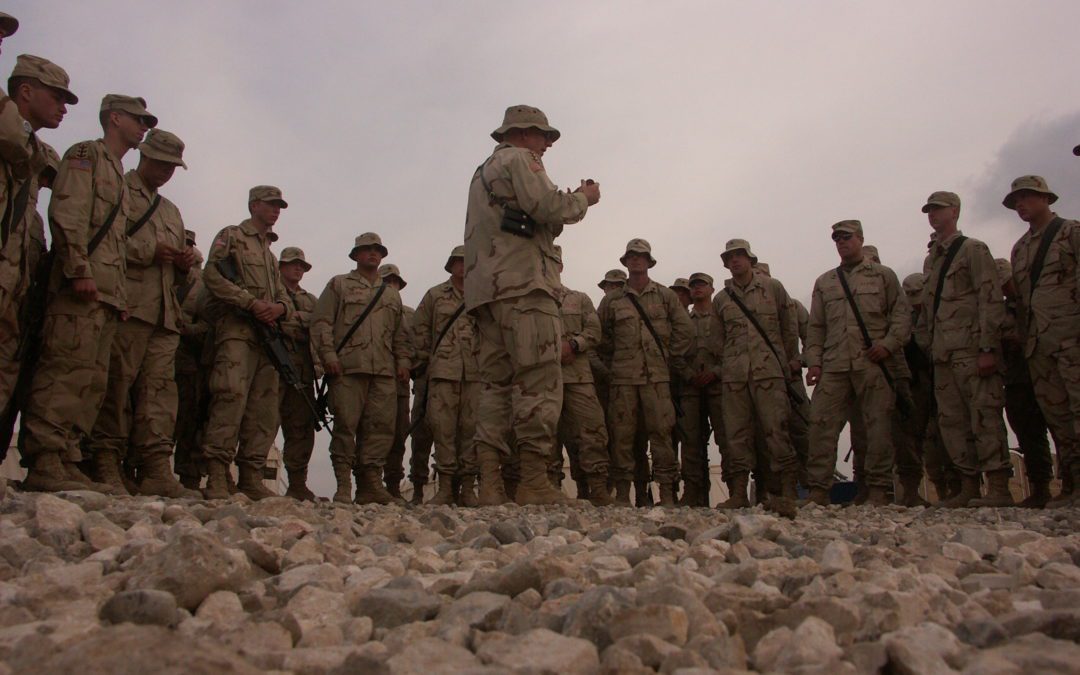Author: Gregg F. Martin, PhD, Major General, US Army (Retired)
Bipolar disorder can strike virtually anyone, regardless of gender, race, education or class, from pre-teens into our sixties. It is an equal opportunity destroyer of lives and health, marriages and families, careers, friendships, finances and more.
Many people with bipolar disorder are not as fortunate as I was. Between 25 to 50 percent of the five million or more people with bipolar disorder in the U.S. attempt suicide at least once. Eight percent unfortunately die by suicide, and the suicide rate for people with bipolar is four times higher than the general population. Although it’s not known how many active military service members may have bipolar disorder, some 700,000 veterans suffer from it. [See sources 1, 2, and 3 below.]
Deciding to publicly share my story is a serious matter, but something I had to do. Seeking mental health treatment should be destigmatized and dealt with the same way our culture deals with cancer, diabetes, or a broken arm. We recognize the symptoms, get medical help, recover, and get on with our lives. We don’t blame or shame the sick or injured person. We love, support and help them get well.
But with mental illnesses, we often wait for people to fail before we get them the help they need.
How is it that failure — often with permanent family, legal, social, career, or academic consequences — tends to be the first and only indicator of brain maladies? How can we change this?
We need more scientific research on bipolar disorder and other mental illnesses, brain health broadly, and the “invisible wounds of war.” We must identify the genetic early warning markers, find the causes, understand the disease mechanisms, develop preventive medications and better recovery treatments. We need earlier identification of symptoms, and even potential cures. This research is vital for our broader society, our Veteran population, and our serving military.
Moreover, how can we accommodate people who have these maladies so they can continue their careers? The medical and academic professions have found a way to do so. Look at world-renowned doctor and scholar Dr. Kay Redfield Jamison of Johns Hopkins University. She has suffered from severe bipolar disorder for decades, yet figured out how to manage it, and perform at a world-class level. Can other professions follow suit?
Millions continue to suffer. Worse still, their suffering is compounded by the stigma many members of our society continue to attach to brain maladies. By some grim coincidence, I have found myself finally healthy enough to begin to tell my story during the worst public health crisis of our time. I hope it will be over soon. But even when the pandemic is over, our mental health crisis will remain, and even appears to have worsened.
I am absolutely not ashamed or embarrassed to be a Bipolar Survivor. In fact, I am thankful and proud to have survived this toughest of wars — with the support of my wife, family, friends, the VA, and Grace — and to be thriving once again, with the unexpected gift of a great new life. I ask you to help me abolish the stigma associated with bipolar disorder and other brain maladies, by admitting you or another needs help, and then by getting it.

Image Credit to Tom Sawyer
Be Strong and Courageous.
If you or someone you love is demonstrating the warning signs of bipolar disorder or other mental illness, go get medical help immediately. Engage your medical professionals, understanding that bipolar is difficult to diagnose, can blend in and interweave with other brain maladies and personality traits, and can take years to properly diagnose and treat. Read, study and learn all you can about bipolar disorder and mental illness in general. Engage fully in this effort.
Once you are prescribed medication and treatment, stick to it religiously and maintain an informed dialog with your doctor and therapist. Steel yourself to be compliant for life. Bipolar disorder never takes a break or lets its guard down, and neither can you. You may be in a “forever war” that you cannot quit or walk away from, without potentially disastrous results.
The great news is that bipolar disorder is a treatable medical condition. With proper treatment and a positive, determined attitude, you can live a wonderful, successful, happy life. Take hope that you will join the legions of bipolar survivors who have overcome this brutal malady and are now thriving. Be proud and grateful for how far you have come and will progress. Help abolish the stigma!
It takes courage and strength to admit you are broken, to get help, and to get fixed. Be strong and get help for yourself, your family member, your friend and your comrade. It’s okay to admit that you’re not okay. There is no real stigma except to not get the help you need and become a statistic.
We should all begin to view fighting mental illness, not as an affliction, but rather, as a ‘heroic cause’, analogous to women who bravely fight breast cancer.
To be continued…
This series of blogs tells the story of a general’s service and success, followed by mental health disaster and recovery, then new life. The purpose is to raise understanding, build connection and hope, and help abolish the stigma.
The views expressed are those of the author and do not necessarily represent the views of the Department of Defense or the US Government. This piece was originally published in Task&Purpose.
Gregg F. Martin, PhD, is a 36-year Army combat veteran, retired two-star general, and bipolar survivor. A former president of the National Defense University, he is a qualified Airborne-Ranger-Engineer and strategist. A graduate of West Point and MIT, he writes and speaks on his bipolar experiences to help stop the stigma and save lives. For more information, visit www.generalgreggmartin.com
His charity of choice is the International Bipolar Foundation.
Sources:
1. ncbi.nlm.nih.gov; “Undiagnosed Bipolar Disorder: New Syndromes and New Treatments”, Ira D. Glick, MD.
2. www.washingtonpost.com September 26, 2019; en.m.wikipedia.org“National Veterans Suicide Prevention Annual Report”, 2019.
3. Four percent of a veteran population of 17.4 million, from CNN, US Census; and VAclaimsinsider.com, “Understanding Bipolar Disorder in Veterans”.


